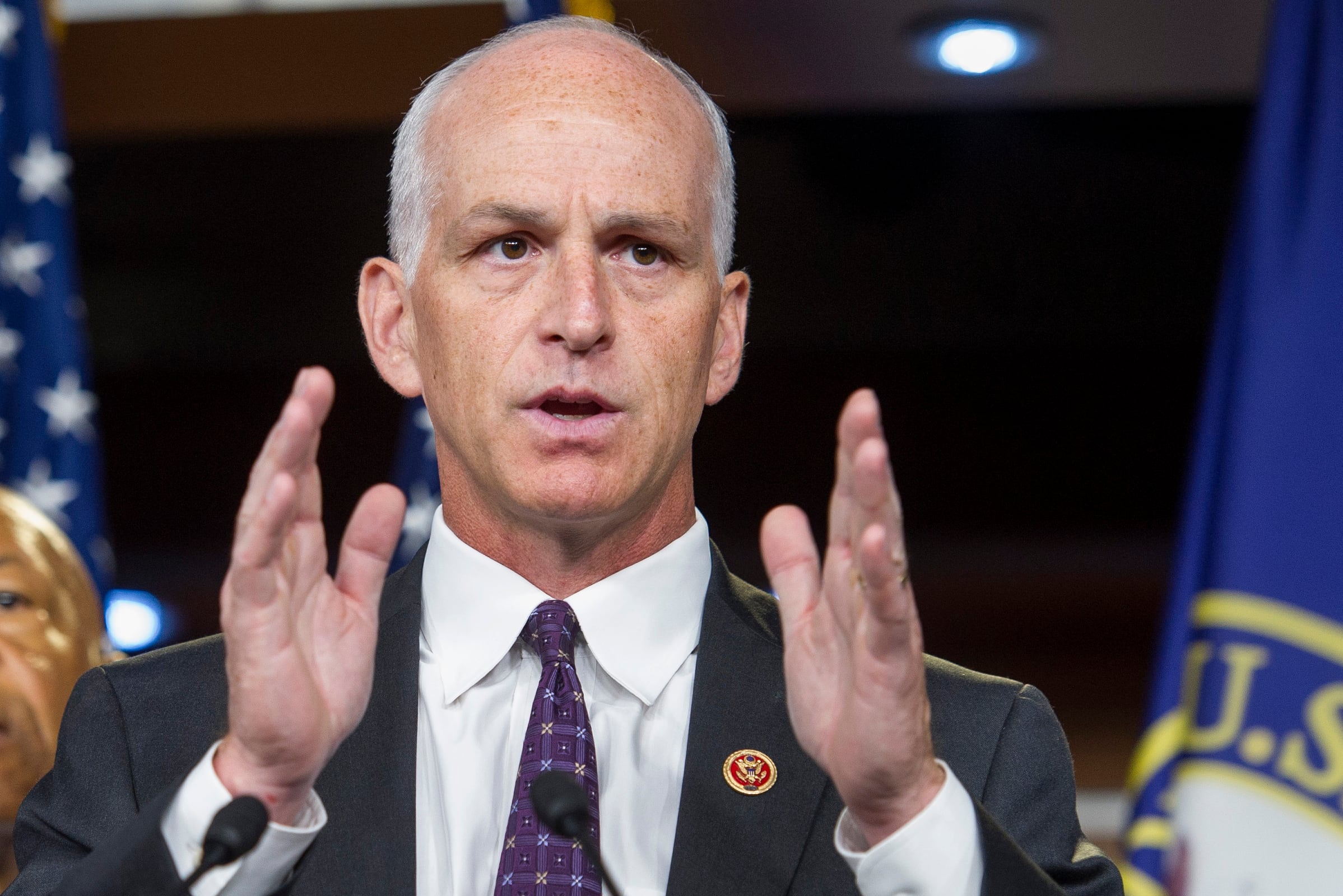WASHINGTON ― The chairman of the House Armed Services Committee said he is leaning toward an annual defense policy bill in 2020 that is more narrow than the one Congress passed this month, which means fewer unrelated provisions of the sort that complicated passage this year.
Chairman Adam Smith, D-Wash., and Senate Armed Services Committee Chairman Jim Inhofe, R-Okla., recently said in separate interviews that provisions unrelated to defense had been a hindrance during months-long negotiations to reconcile competing versions of the bill.
“I think we’re going to be a little less ambitious about what we try to get into the bill,” Smith said. “I am going to be a little more cautious about outside issues that are included in the bill to make sure there is an understanding that, while I don’t mind including them, I don’t want them to jeopardize the overall piece of legislation.”
The 2020 National Defense Authorization Act included language establishing President Donald Trump’s long-desired Space Force. But it also included language establishing paid parental leave for federal workers ― inserted by Democratic leaders through a self-executing rule in the House and not a vote.
Extensive prohibitions against a class of chemicals known as “PFAS” were also a drag on the bill, according to a congressional aide, until they were replaced in favor of prohibitions limited to the military.
At least one lawmaker was left with misgivings over the depth of the bill’s reach. Senate Committee on Homeland Security and Governmental Affairs Chairman Ron Johnson, R-Wis., acknowledged that, in the rush to pass the bill before year’s end, he lost a jurisdictional fight on the parental leave provision. (He voted against closing debate on the bill but voted ultimately to pass it.)
“We always talk about being a country governed by the rule of law. Well, Congress ought to respect its rules as well,” Johnson said, adding there should have been agreement from him as chairman and his panel’s top Democrat. “All these year-end bills have turned into huge Christmas trees, and there’s a lot of heartburn about that, so hopefully they’re starting to hear it.”
RELATED

An NDAA has been finalized by Congress for 59 consecutive years, but this year’s bipartisan, bicameral negotiations to reconcile each chamber’s bill was complicated by split control of Congress.
House Republicans en masse opposed their chamber’s bill months ago, prompting Democrats to add progressive policy measures so it would muster the votes to pass the House. But those provisions were stripped out in talks with the GOP-controlled Senate.
Smith said that next year he might revisit several provisions excluded from the bill, including those ending a ban on transgender military service; restricting the president’s ability to use military funds for a border wall; banning new detainees at the military’s Guantanamo Bay detention facility; and banning deployment of a new low-yield nuclear weapon.
“I think all of those issues were not resolved to the satisfaction of me and the Democratic Party,” Smith said. “The question is what’s doable in those areas and what statement do we want to make on the policy. Even if we know Donald Trump and Jim Inhofe haven’t changed their minds ... do we want to take another run at it and how are things we’re going to be discussing with a lot of people in great detail."
On the other hand, an abbreviated 2020 congressional calendar, due to next year’s elections, could contribute to a less ambitious bill. Both chambers have long breaks in October, for example, leading up to Election Day, Nov. 3.
Still, Smith said he would again strive to consult with as many members and groups as possible, such as the Hispanic Caucus and Congressional Progressive Caucus, even if it complicates the process.
“We were more inclusive than at any time I’ve been here, and that’s kind of what made it more difficult. When you have that many people involved, you have that many people who can say: ‘I don’t like this,’ ” Smith said. “But I think that’s the way it ought to work, so I will continue to embrace a broadly inclusive process and get to the best result we can.”
According to Inhofe, the thorniest issues were “partisan and nonmilitary.” Inhofe said he generally agreed to unrelated language, but only if it came at the request of chairmen from the relevant committees ― with the exception of Johnson.
Overall, Inhofe said he planned in 2020 to repeat his game plan from 2019, which was to strike a deal early for that Senate’s version of the bill with his panel’s top Democrat, Sen. Jack Reed, of Rhode Island. The two, Inhofe said, resolved their disagreements ahead of the committee’s NDAA markup over the summer.
“We had all the meetings we had to have, and then when [the committee met to mark up the bill], we did it in a matter of six hours. The House didn’t do anything up to that point,” Inhofe said. “I wouldn’t do ours differently. I would encourage the Democrats and Republicans in the House to do theirs earlier.”
Joe Gould was the senior Pentagon reporter for Defense News, covering the intersection of national security policy, politics and the defense industry. He had previously served as Congress reporter.




